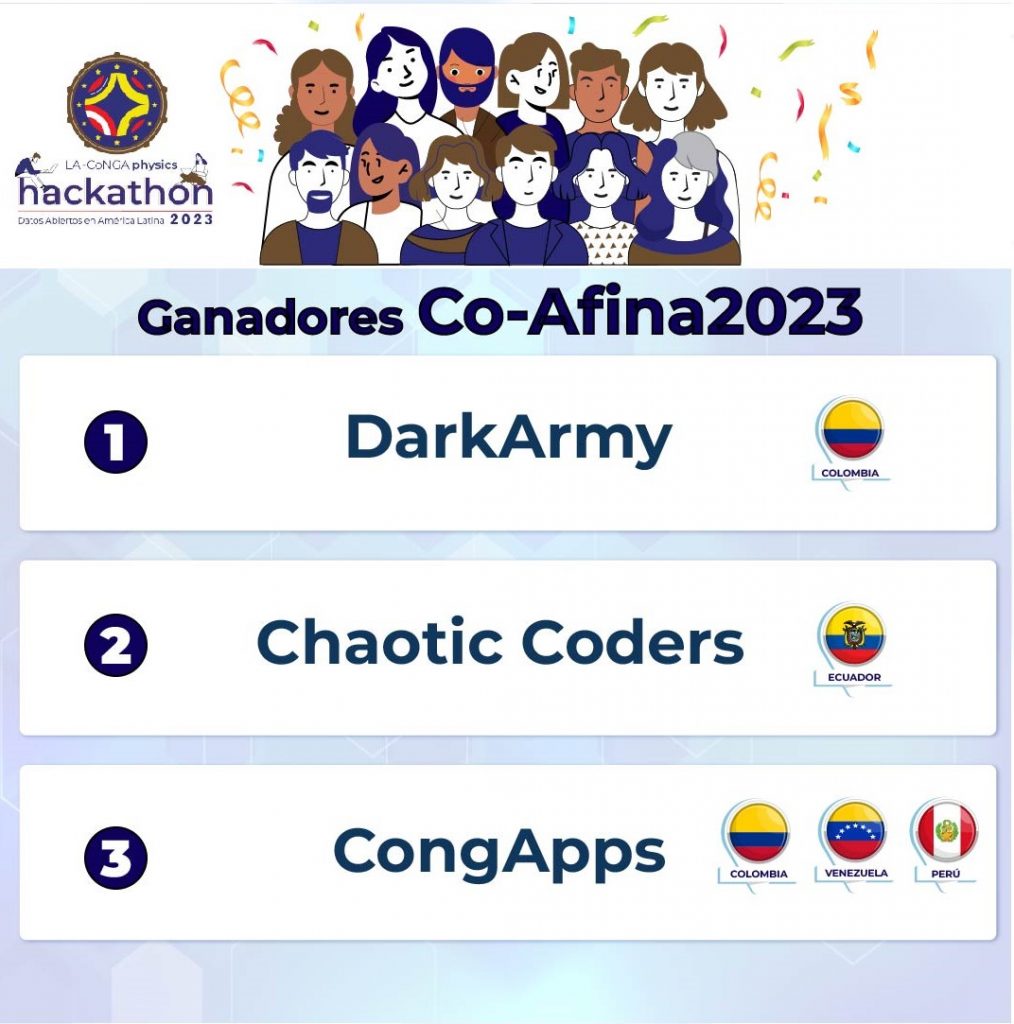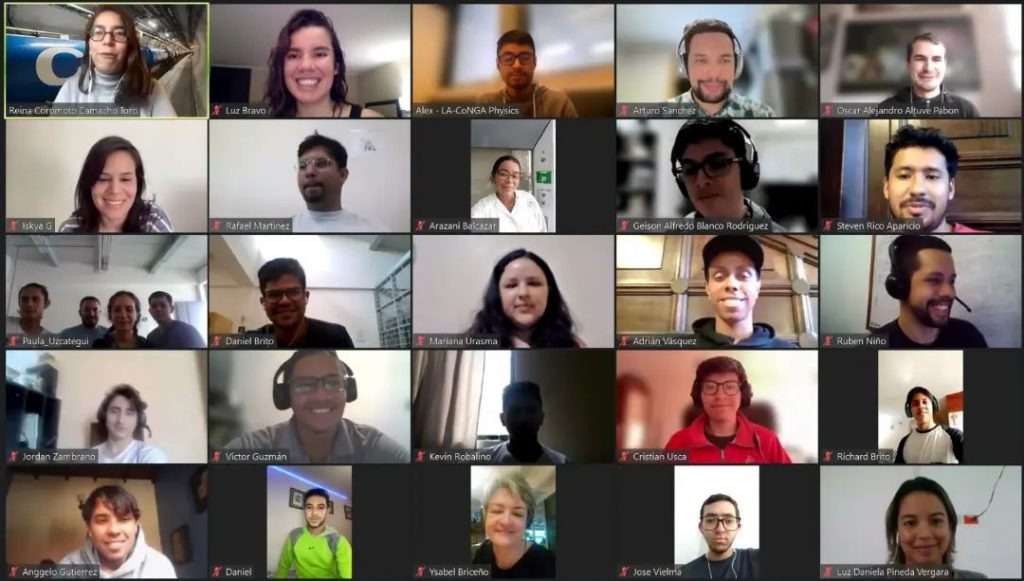With little sleep and a lot of adrenaline, the seventy-eight participants of the second edition of the Latin American hackathon Co-Afina responded to the challenges posed with the use of open data on issues related to the environment, citizenship and education. For three days (20-22 October this year) university students from different countries joined forces and contributed their solutions with the use of computational tools and interdisciplinary dialogues. This edition of Co-Afina was funded by the ICTP Institute and its Physics Without Frontiers (PWF) programme, the Software Sustainability Institute (SSI) and the artificial intelligence company INAIT SA, in addition to the organising alliance of the LA-CoNGA physics project with Creative Commons Venezuela, RedClara and the Academic Network of Ecuador (CEDIA).
Winning solutions of the second edition of the Latin American hackathon focused on informed voting, financial forecasting and sustainable tourism.
In sixteen teams, students from thirty universities in eight countries in Latin America concentrated their efforts remotely on solutions that had to take into account: the degree of closeness to a solution to the challenge posed; the usability, creativity and functionality of their proposal; the practical viability and innovation of the proposed solutions; as well as the way of communicating the development of the idea.

The winning solution, which, according to the jury, received the highest score in the quality criteria, was that of the “DarkArmy” team, made up of representatives from the Universidad Industrial de Santander (Colombia), Physics and Systems Engineering students. The proposal called “Electoral Radiography of Colombia” consisted of a web application that seeks to promote informed voting so that citizens can choose with a more accurate view of the profile of candidates running for election. This team consisted of Jorge Jaimes, Camilo Carvajal, Brayan Barajas, Paula Uzcátegui. The winning solution can be seen here: https://www.youtube.com/watch?v=0019wrS2c1s
Second place was awarded to the team “Chaotic Coders”, made up of Physics students from Yachay Tech University (Ecuador), with the proposal “Predicting the value of coffee”, a model based on machine learning that uses historical data to estimate the future value of coffee in the financial market. Arianna Paredes, Mateo Carpio, Jordan Zambrano, Kevin Robalino were the second place winners. The team’s proposed solution, available here: https://www.youtube.com/watch?v=5fAKsmOL_Ls&t=1s, responded to the challenge presented by Inait’s Swiss team on market forecasting.
Finally, third place was awarded to the “CongApps” team, made up of students from the Universidad Industrial de Santander (Colombia), the Universidad Simón Bolívar (Venezuela) and the Universidad Nacional Mayor de San Marcos (Peru), who also proposed an application for citizens to know the profile of candidates in elections, thus meeting the challenge of informed voting. The students in this team were: Steven Rico, Adrian Vasquez and Omar Medina.
Yany León Castañeda, representative of Red DataQuorum and Colombian challenger expressed her excitement for having obtained two winning solutions in this hackathon “it is the first time I participate in an initiative like this and I have been surprised with the results obtained in such a short time, based on the enthusiasm, knowledge and creativity of those who have participated. This is a great opportunity to continue generating networks in this effort to promote informed voting,” he said.
This new edition of Co-Afina also had a special mention, awarded to the “Neotropical” team with the proposal called “Quantum Peru”, which seeks to reduce the environmental impact of the presence of tourists at sites of environmental and archaeological-cultural interest. This team was made up of students from Venezuela and Ecuador: Andrés Caña, Cristian Usca, Emilio Toledo, Rubén Niño and Isabella Sánchez, representing the Universidad Central de Venezuela, the Universidad Simón Bolívar, the Universidad de Los Andes, as well as the Universidad San Francisco de Quito. The team responded to the challenge presented by the Peruvian Ricardo Quispe, representative of QuantumQuipu, who participated last year as a student and was encouraged this time to continue in the Co-Afina network as a challenger.
After thanking the inter-institutional effort to carry out this new edition, the organisers of Co-Afina highlighted the great work done by the Latin American student teams on the last day, having responded in such a short time to the challenges posed within the regional context, from a critical, creative and environmentally sensitive perspective. “They should feel very proud of what they did,” said Reina Camacho, on behalf of the LA-CoNGA physics project. Arturo Sánchez, representative of INAIT SA, closed by saying: “I hope to see you next year”.


Leave a Reply